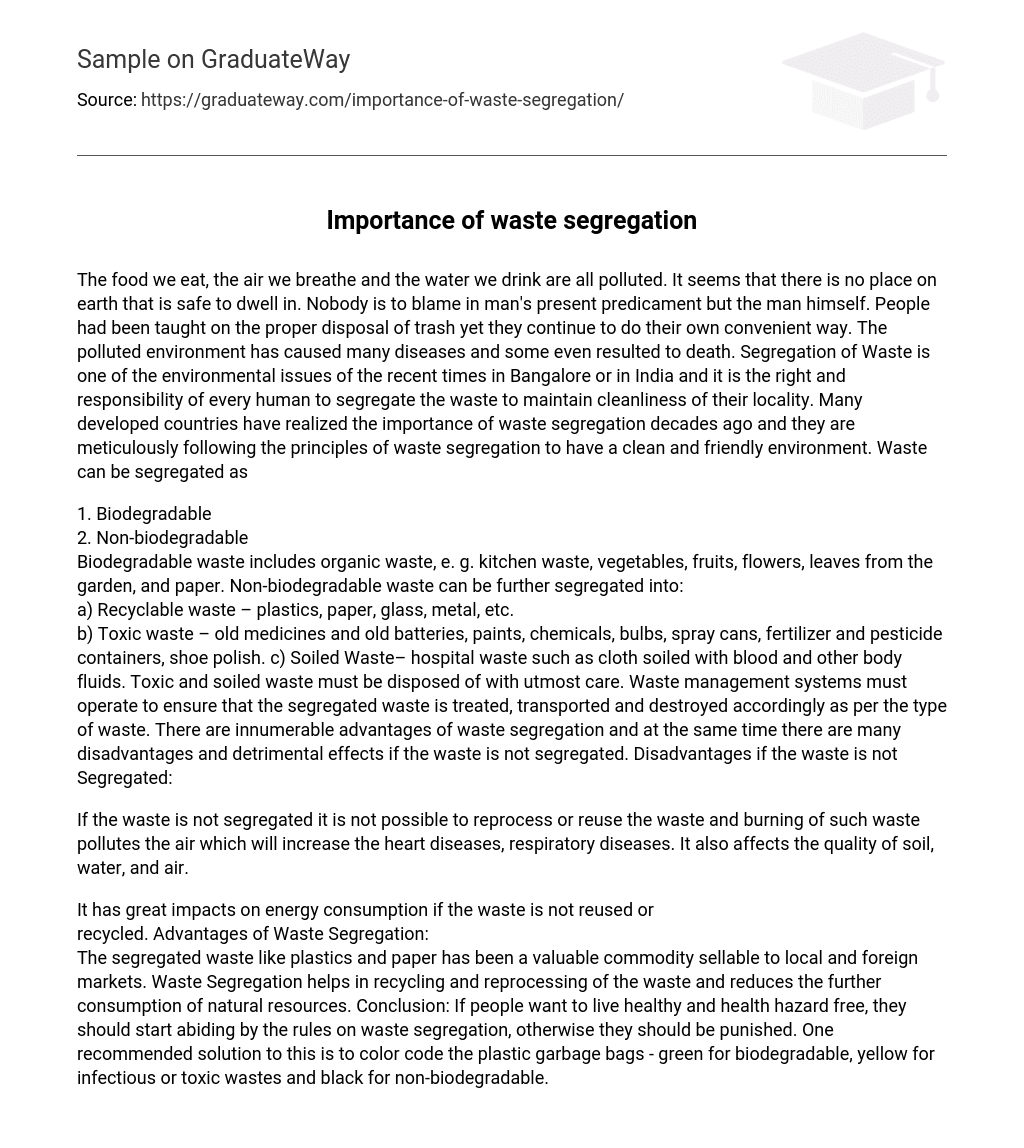The food we eat, the air we breathe and the water we drink are all polluted. It seems that there is no place on earth that is safe to dwell in. Nobody is to blame in man’s present predicament but the man himself. People had been taught on the proper disposal of trash yet they continue to do their own convenient way. The polluted environment has caused many diseases and some even resulted to death. Segregation of Waste is one of the environmental issues of the recent times in Bangalore or in India and it is the right and responsibility of every human to segregate the waste to maintain cleanliness of their locality. Many developed countries have realized the importance of waste segregation decades ago and they are meticulously following the principles of waste segregation to have a clean and friendly environment. Waste can be segregated as
1. Biodegradable
2. Non-biodegradable
Biodegradable waste includes organic waste, e. g. kitchen waste, vegetables, fruits, flowers, leaves from the garden, and paper. Non-biodegradable waste can be further segregated into:
a) Recyclable waste – plastics, paper, glass, metal, etc.
b) Toxic waste – old medicines and old batteries, paints, chemicals, bulbs, spray cans, fertilizer and pesticide containers, shoe polish. c) Soiled Waste– hospital waste such as cloth soiled with blood and other body fluids. Toxic and soiled waste must be disposed of with utmost care. Waste management systems must operate to ensure that the segregated waste is treated, transported and destroyed accordingly as per the type of waste. There are innumerable advantages of waste segregation and at the same time there are many disadvantages and detrimental effects if the waste is not segregated. Disadvantages if the waste is not Segregated:
If the waste is not segregated it is not possible to reprocess or reuse the waste and burning of such waste pollutes the air which will increase the heart diseases, respiratory diseases. It also affects the quality of soil, water, and air.
It has great impacts on energy consumption if the waste is not reused or
recycled. Advantages of Waste Segregation:
The segregated waste like plastics and paper has been a valuable commodity sellable to local and foreign markets. Waste Segregation helps in recycling and reprocessing of the waste and reduces the further consumption of natural resources. Conclusion: If people want to live healthy and health hazard free, they should start abiding by the rules on waste segregation, otherwise they should be punished. One recommended solution to this is to color code the plastic garbage bags – green for biodegradable, yellow for infectious or toxic wastes and black for non-biodegradable.





